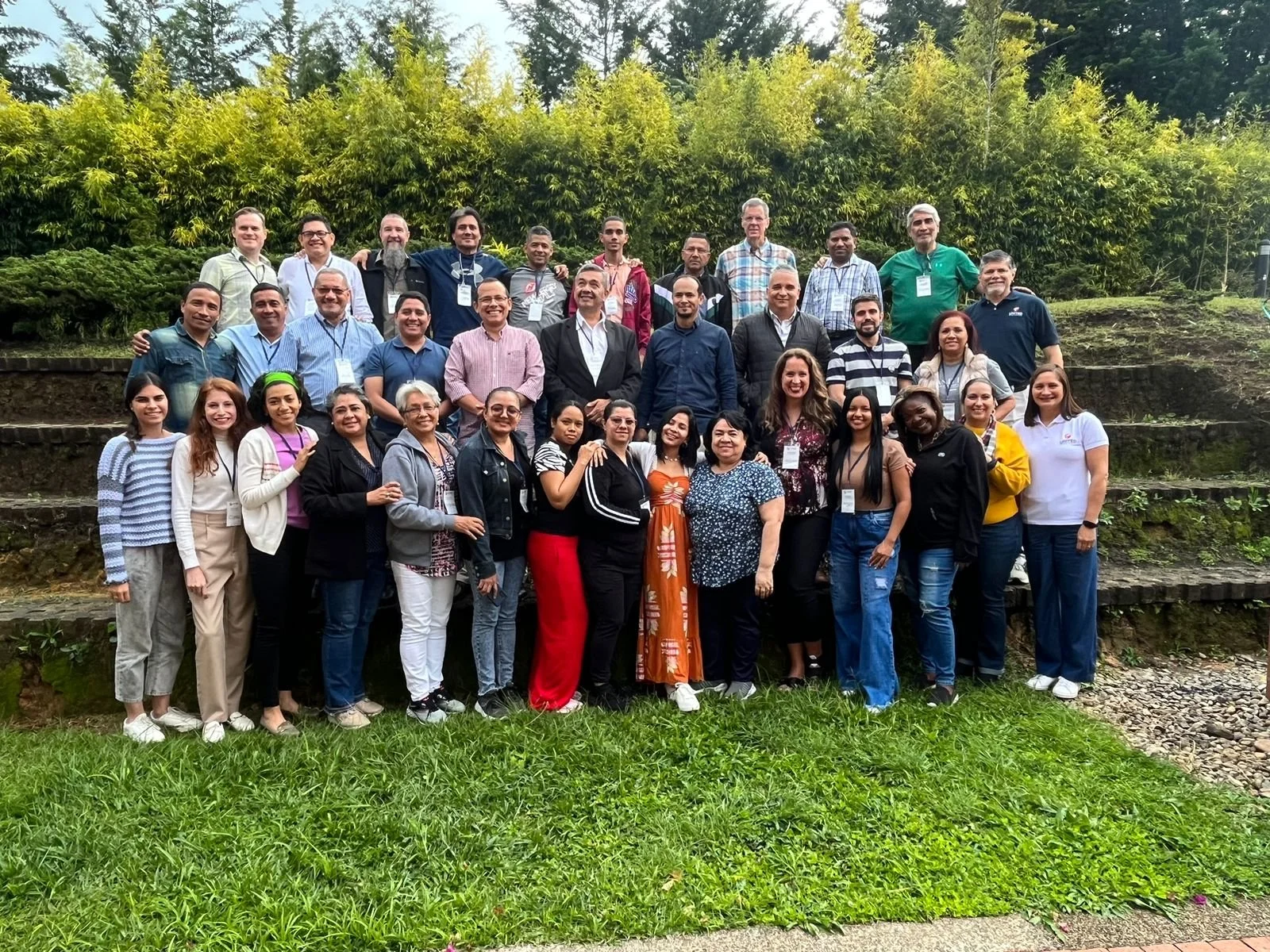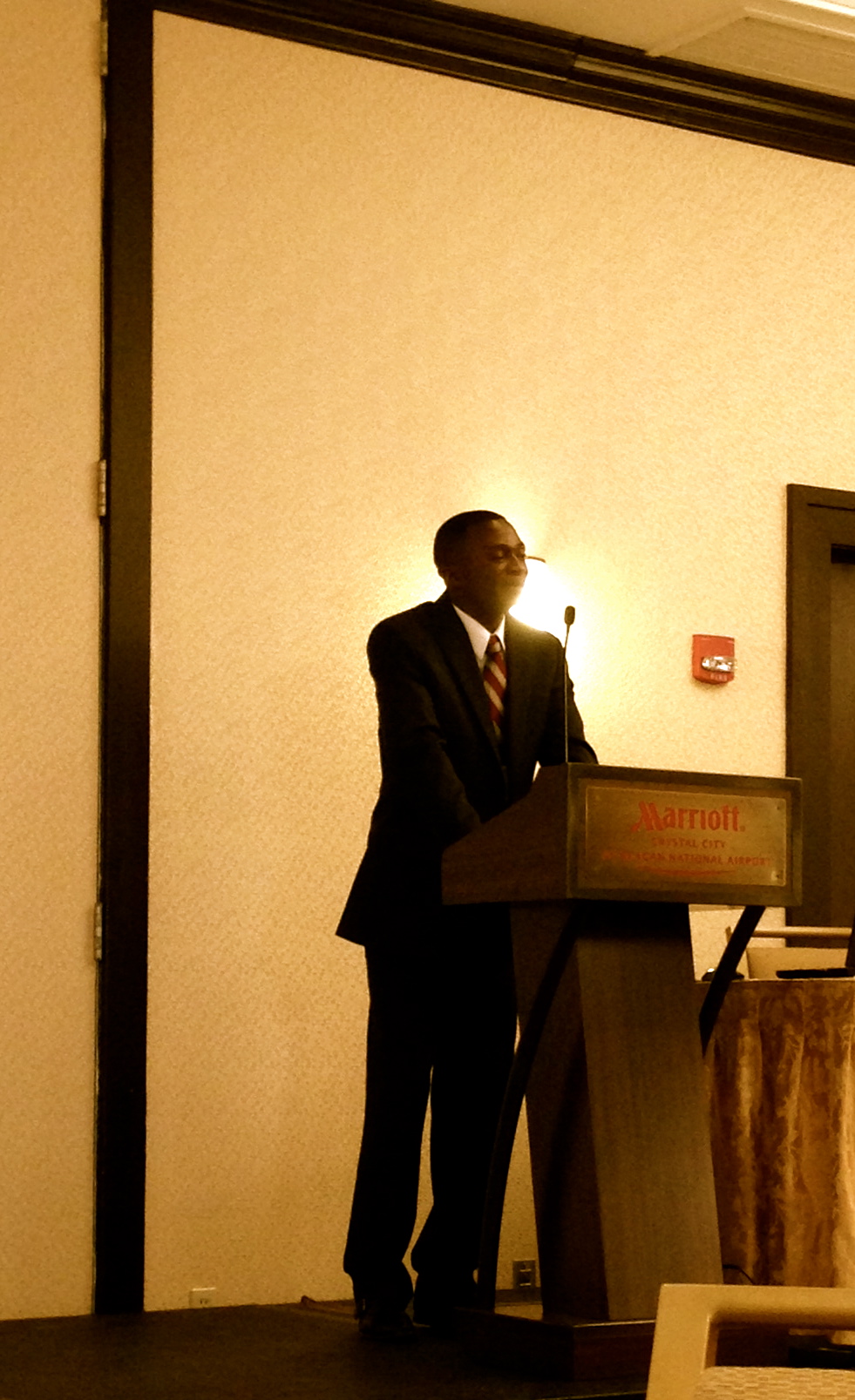Every day, I have the privilege of working with refugees. After years of applying; waiting; hoping; they arrive to the U.S., full of hope and yet hiding a history of heartbreak behind their wide smiles. Often, I can only guess at the traumas they've endured and the things they've escaped. One thing I do know: the word refugee is synonymous with survivor. All of them have left behind loved ones, the ones that weren't so lucky or weren't so strong.
Sometimes, I get the honor of actually hearing a refugee's story from start to finish; it never fails to leave me in awe. I got such an opportunity recently. The U.S. Committee for Refugees and Immigrants, an organization that helps refugees resettle, had their annual conference recently. One of the refugees I work with was honored to be selected to share his life story in front of hundreds of people.
Sanga* and I had already become friends after he attended my Cultural Orientation classes, where I taught him and other Congolese refugees practical lessons such as how to get a driver's license and how to apply for a job. These days, Sanga has a full schedule working full-time in manufacturing and taking steps toward applying for college. While I helped Sanga edit his story for grammar, all of these words are his own.
As he shared his story with me, I often had to blink back tears or hide my shock as he spoke about his life journey, from deep in the forests of the Congo to the heart of Houston...
I am 36 years old and I was born in a small city in the North Eastern part of the Congo.
I ran away from my country in 2005 after the death of my father, who was a district commissioner. My father was working to unite warring tribes; he wanted peace in our district. Because of this, some of the men from his own tribe killed him with a machete.
They were afraid of his betrayal, and so they killed their own brother. Then, they tried to kill my family, and so we had to flee. My family was separated; I fled alone to Kenya. On the way, I had to stay in hiding, because the rebel groups were everywhere - I hid on a train for four days. I was 30 years old, and I had never felt so sad because I wasn’t sure what I would do.
When I arrived in Kenya, I slept on the streets for 2 days because I didn’t know what to do. After that, I went to a church. They helped me apply to be a refugee. During this time, a pastor took care of me and gave me a place to live. But, I was always afraid in Kenya because I didn’t have any legal rights and I was always afraid that the same people who killed my father would come to kill me. Once in Kenya I was attacked; I thank God I am still alive. After some time in Kenya, I began to teach French at a language school. I first applied for refugee status in 2005.
After waiting 7 years, in 2012, I finally received a letter that the United States had accepted me as a refugee to live in their country. I felt great when I got this letter. I knew there were so many people applying to live in the United States, so I was not sure if it would ever happen. I had been hoping for this for so long that I could not believe it.
When I first arrived in the United States, some things surprised me. For example, I was surprised by how people take care of other people here. I find the American people very caring.
I want to contribute to the American community. I want to help people, especially new refugees. In the Congo and Kenya, I was a medical first aid worker because I like helping people. I would like to do something similar in the United States one day to help the community. I know the feeling of what it is like to flee, the feeling of going through a war, and I feel that experience will help me support new refugees.
In Africa, there was no peace, so I could not learn or finish my studies. I feel like America is my land now. I am happy because I have found peace where I am. The people I have found here represent my family. If I have a problem, I can go to my new friends and talk to them and find a solution.
In my opinion, one of the greatest struggles for the African people is a lack of peace. This will be the most important thing for them – to learn to have peace. Peace allows refugees to work, study, and dream for their future. Without peace in Africa, there can be no hope and no progress. That is why I left. In my case, a lack of peace means I do not even know which of my brothers are still alive.
Even though I have had many difficult times, I am proud to be a called a refugee -- even Jesus Christ was a refugee. When he was born, some people wanted to kill him. His family had to flee, so even Jesus was a refugee like me. He had to leave his land because he was in danger of something happening to him. He was living in a state of fear, like me. I know what it is like to live in this state of fear. Now that I am living in the US, I am comfortable and I do not have fear.
I will always be proud to be called a refugee."
Sanga got to fly to Washington, D.C., to share his story. When I asked if he was nervous, he told me, "Of course I am nervous. But I must do this, because not everyone can speak the stories we know as refugees. Someone must tell the stories for those that did not survive."
His favorite part of the trip was getting to see the White House in person after his speech.
May you be encouraged by Sanga's story, ever more aware of the blessings you have, and be reminded that within all of us, God has given us the spirit of a survivor.
*Sanga's name has been changed to protect his identity.









